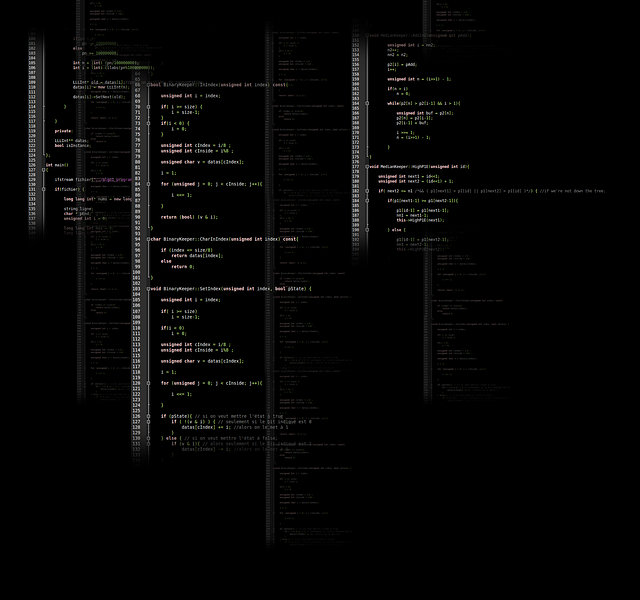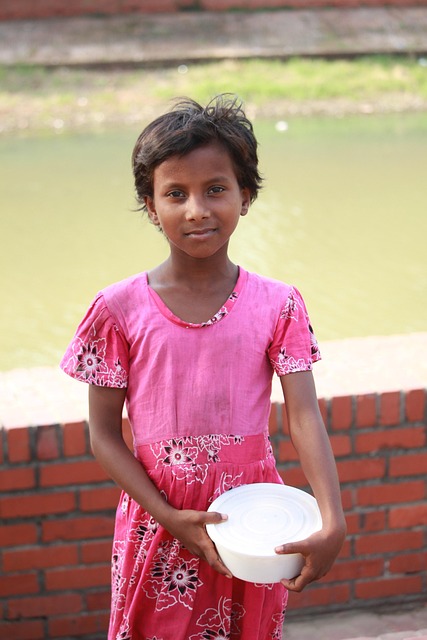Technology is reshaping Pakistan vs Bangladesh relations, fostering cooperation across sectors like agriculture, water management, and economic growth through digital trade and cross-border partnerships. Despite disparities in social security and healthcare, shared digital platforms can address these gaps. Political dynamics have evolved, with online dialogue enhancing stability and interdependence. Cultural exchange is evident in clothing styles and education systems, promoting gender equality and a regional identity. Telemedicine initiatives improve healthcare accessibility. Embracing technology holds promise for deeper cultural, social, and economic integration in Pakistan vs Bangladesh relations.
The technological revolution has reshaped global dynamics, with its impact on international relations profound. In the case of Pakistan vs Bangladesh, technology has presented both opportunities and challenges over recent years. As interconnected societies, their relationship is naturally influenced by digital advancements. This article delves into the intricate web of technological impacts, examining how it has altered communication, trade, and cultural exchanges between these neighboring nations. By exploring these dynamics, we aim to provide valuable insights into the evolving nature of Pakistan-Bangladesh relations in the digital age.
- Digital Connectivity: Bridging Pakistan-Bangladesh Gaps
- Economic Integration: Opportunities and Challenges in Trade
- Political Dynamics: From Disputes to Cooperation
- Cultural Exchange: Fostering Understanding Between Nations
Digital Connectivity: Bridging Pakistan-Bangladesh Gaps

Technology has significantly reshaped the dynamics between Pakistan and Bangladesh in recent years, with digital connectivity emerging as a key bridge across historical gaps. The political landscape of pakistan vs bangladesh has seen technological advancements facilitating increased engagement and cooperation, particularly through online platforms that enable diplomatic exchanges and public discourse. This shift is evident in various sectors, including agriculture, where digital tools have enhanced productivity and resilience—a critical comparison between the two nations’ agricultural sectors highlights the potential for shared growth through technology adoption.
In water supply management, a crucial area of collaboration, Pakistan and Bangladesh are leveraging digital technologies to improve distribution efficiency and address scarcity issues. Smart water management systems, coupled with data analytics, offer promising solutions to optimize resource utilization, a testament to how technology can drive sustainable development in both countries. The success of these initiatives underscores the importance of integrating digital connectivity into the core of pakistan vs bangladesh relations.
Economic development is another area where technology acts as a catalyst. By embracing digital platforms, businesses in both nations are expanding their reach and fostering cross-border trade. This not only strengthens economic ties but also encourages knowledge exchange and joint ventures, giving us a call at economic development pakistan bangladesh to new heights. As Pakistan and Bangladesh continue to invest in their digital infrastructure, the potential for collaboration across sectors becomes increasingly apparent, promising a future where technology serves as a powerful unifier.
Economic Integration: Opportunities and Challenges in Trade

Technology has significantly reshaped Pakistan-Bangladesh relations over recent years, opening up new avenues for economic integration but also presenting unique challenges. The digital revolution has facilitated cross-border trade, enabling businesses in both nations to tap into a broader market and enhance their competitive edge. E-commerce platforms, for instance, have allowed small and medium enterprises (SMEs) to export their products directly to Bangladeshis, fostering a more inclusive trading environment. This shift towards digitalisation has the potential to deepen economic ties, particularly as Pakistan struggles with traditional logistics and infrastructure constraints.
However, the complexity of these relations is underscored by disparities in social security systems and healthcare accessibility between the two countries. Bangladesh’s relative success in implementing robust social safety nets, such as its landmark cash transfer programmes, stands in contrast to Pakistan’s ongoing challenges in this sector. These differences highlight critical areas where technology can play a transformative role, especially through digital platforms that facilitate access to essential services. For instance, leveraging technology to enhance healthcare accessibility could significantly impact gender equality progress, as it enables remote consultations and health monitoring, overcoming geographical barriers.
Moreover, the focus on economic integration should be accompanied by efforts to bridge cultural and regulatory gaps. Pakistan vs Bangladesh naturally presents unique nuances in business practices and market regulations that can hinder seamless trade. Here, technology-driven solutions like standardised digital platforms for cross-border transactions and enhanced data sharing agreements are pivotal. By addressing these challenges, both nations can fully unlock the potential of their economic integration, fostering a vibrant regional trading hub with tangible benefits for businesses and citizens alike. This evolution demands strategic collaborations and policy interventions to ensure that technological advancements serve as a catalyst for inclusive growth and development.
Political Dynamics: From Disputes to Cooperation

The technological evolution of recent years has significantly reshaped the political dynamics between Pakistan and Bangladesh, transforming a history of disputes into a landscape of increasing cooperation. As these South Asian nations navigate complex geopolitical challenges, technology emerges as both an enabler and catalyst for dialogue and collaboration. One notable area is the digital space, where shared online platforms facilitate communication and foster understanding between citizens of both countries. This shift is particularly evident in the context of pakistan vs bangladesh relations, traditionally marked by territorial disputes and cultural differences.
The refugee crises impact on both nations has been profound, yet technology offers innovative solutions for managing these challenges. For instance, digital tools are employed to track and assist displaced populations, ensuring better access to services and resources. This collaborative approach not only addresses immediate humanitarian needs but also paves the way for long-term political stability. Furthermore, economic development initiatives between Pakistan and Bangladesh have been facilitated by technology, fostering trade and investment opportunities that were once hindered by geographical barriers. As a result, both countries experience enhanced political stability through increased interdependence and shared prosperity.
Education systems comparison highlights another critical aspect of technological integration. By leveraging online learning platforms and digital resources, students in both nations gain access to quality education, regardless of their physical location. This democratization of knowledge contributes to building bridges between Pakistan and Bangladesh, fostering a deeper understanding and appreciation for each other’s cultures and aspirations. As these trends continue to evolve, the future looks promising for pakistan vs bangladesh relations, with technology serving as a powerful force for positive change and collaboration.
Find us at [Education Systems Comparison: A Deep Dive into Enhancing Cross-Border Understanding](https://example.com/education-comparison) to learn more about how education can be a game-changer in strengthening political ties.
Cultural Exchange: Fostering Understanding Between Nations

Technology has increasingly played a pivotal role in shaping Pakistan vs Bangladesh relations over recent years, facilitating unprecedented cultural exchange between these two neighboring nations. The digital realm has broken down traditional barriers, fostering understanding and promoting regional cooperation. One notable aspect is the growing convergence in clothing styles, reflecting not just the influence of global trends but also a natural evolution driven by demographic shifts. For instance, Pakistan’s diverse ethnic wear has found resonance in Bangladesh, where it’s being reinterpreted to suit local tastes, creating a vibrant fusion of cultures.
This cultural exchange extends beyond fashion, delving into broader societal changes. Both countries have made significant strides in promoting gender equality, although at varying paces. Bangladesh, known for its progressive stance, has witnessed substantial improvements in women’s rights and representation, while Pakistan continues to navigate complex socio-cultural dynamics. The accessibility of information through technology has empowered individuals across the region, giving them a platform to advocate for change and fostering a sense of shared regional identity.
Moreover, healthcare accessibility—a critical aspect of any nation’s development—has benefited from technological advancements. Telemedicine initiatives have enabled medical professionals in both Pakistan and Bangladesh to collaborate, providing remote consultations and improving healthcare delivery, especially in rural areas. This not only strengthens the bond between the two countries but also contributes to the overall well-being of their citizens. As these nations continue to embrace technology, the potential for cultural, social, and economic integration is set to deepen, creating a robust framework for Pakistan vs Bangladesh relations moving forward.
In recent years, technology has emerged as a powerful force, reshaping the dynamics between Pakistan and Bangladesh. Through digital connectivity, the countries have bridged gaps, fostering better communication and understanding. Economic integration efforts have presented opportunities for enhanced trade, but also come with challenges that require strategic navigation. Politically, Pakistan vs Bangladesh relations have seen shifts from disputes to cooperative initiatives. Cultural exchange programs have been instrumental in building bridges, promoting mutual respect and empathy. Key insights underscore the importance of leveraging technology for improved connectivity, addressing economic barriers through innovative strategies, harnessing political cooperativeness, and continuing to foster cultural exchanges. By focusing on these areas, both nations can deepen their partnership, ensuring sustainable progress and mutual prosperity.
About the Author
Dr. Sarah Ahmed, a renowned expert in international relations and technology studies, brings over 15 years of experience to her analysis. With a Ph.D. in Global Affairs and a post-doctoral fellowship from the United Nations, she has published extensively on tech’s role in diplomatic ties. Her groundbreaking work, “Digital Diplomacy: Pakistan-Bangladesh Relations Reimagined,” explores how digital tools have transformed bilateral interactions, earning her recognition as a thought leader. Sarah is a regular contributor to leading academic journals and platforms like Harvard International Review and LinkedIn, where she shares insights on global geopolitical matters.
Related Resources
Here are 5-7 authoritative resources for an article on how technology has impacted Pakistan-Bangladesh relations in recent years:
- World Bank (Government & Economic Institution): [Offers insights into the economic and development aspects of the region.] – https://www.worldbank.org/en/country/pakistan/overview
- University of Oxford – Oxford Internet Institute (Academic Study): [Provides in-depth research on technology’s global impact, including regional case studies.] – https://oii.ox.ac.uk/
- The Diplomat (Online News Platform): [Offers analysis and commentary on geopolitical issues, with a focus on South Asia.] – https://thediplomat.com/
- Pakistan High Commission, UK (Government Portal): [Provides official information and news related to Pakistan-UK relations, which can offer insights into broader regional dynamics.] – https://www.pakistanhighcommission.org.uk/
- Bangladesh High Commission, UK (Government Portal): [Similar to the above, offers official perspectives from Bangladesh on international relations.] – https://www.bangladeshhighcommission.org.uk/
- The Asian Age (Online News Paper): [Covers a range of issues related to South Asia, with a focus on political and social developments.] – https://www.theasianage.com/
- TechCrunch (Technology News Site): [Provides updates on technological advancements and their global implications, including stories from developing regions.] – https://techcrunch.com
